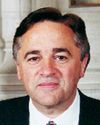Mr. Speaker, it gives me great pleasure to speak on behalf of Bill C-7, an act respecting the control of certain drugs, their precursors and other substances, and to amend certain other acts and repeal the Narcotic Control Act in consequence thereof.
This bill received first reading in February 1994 and passed second reading in April 1994. At that time it was referred to the House of Commons Standing Committee on Health which in turn struck an all-party subcommittee. I was appointed as the chair to study that bill, to receive witnesses from all parts of Canada representing major interest groups and to receive and consider submissions from major interest groups and Canadians from all walks of life. The committee received dozens of submissions and literally thousands of letters for its consideration.
As a consequence of our consultation and discussions, a number of questions and concerns were raised. The committee took the interventions very seriously and requested answers and explanations from officials. The bill is the responsibility of the Minister of Health but numerous aspects relating to enforcement and justice matters necessarily involve the solicitor general's office and the Ministry of Justice.
Officials from all of the ministries were very actively involved in the review of this bill after second reading and co-operated fully throughout the process. I want to give special thanks to them, particularly to Mr. Bruce Rowsell, director of dangerous drugs, health protection branch, Health Canada; Carol Langlois, project manager, bureau of dangerous drugs, health protection branch, Health Canada; Gérard Normand, counsel, national security group, Department of Justice; Mr. Paul Saint-Denis, senior counsel, criminal law policy section, Department of Justice; and Ron Dykeman, senior policy analyst, policing and law enforcement in the solicitor general's office.
The role of parliamentarians and their powers of influence as members of Parliament and members of standing committees of this House has changed dramatically in this Parliament. The subcommittee charged with the responsibility to study Bill C-7 demonstrated that the proposed legislation is subject to change. Indeed Bill C-7 has been changed in many important ways to address the legitimate concerns of Canadians.
As a result of our work, the committee has sought amendments on a number of critical elements of the bill. I am pleased to inform the House that the government through its relevant ministries has brought forward substantive-I emphasize substantive-amendments which fully satisfy the concerns raised by the committee. Some of the areas relate to the whole aspect of rehabilitation and treatment: the issues raised by practitioners, particularly by the Canadian Medical Association; the integrity of needle exchange programs; confidentiality and access to information; the scheduling and particularly the criteria for scheduling of products; the aspect of criminal records; the issue of fortified drug houses.
I could tell members that one of my colleagues from Edmonton came before the committee and made a plea on behalf of the law
enforcement agencies of Edmonton to advise us of what is called fortified drug houses.
Very briefly, fortified drug houses are dwellings that have been altered substantially to ensure that enforcement agencies would not get ready access in the event that they have determined that there were illegal or illicit activities transpiring within that dwelling.
Initially, the bill could not address that. Reasons were given but the committee did not accept them. Thanks to the intervention of our colleague and member for Edmonton West, this bill now provides the mechanism necessary for our law enforcement agencies to deal with the serious problem of fortified drug houses.
We also dealt with some complex matters to do with hybrid trafficking offences. I can tell members that the bill has changed significantly since second reading with regard to the amounts and the penalties.
As has been mentioned, we dealt with the deeming provisions under section 3.1 which I will speak to more fully a little later. We also dealt with section 59, the administration procedure for adjudication, a very important section.
Very briefly, the work of the committee was quite extensive, quite broad on a number of fronts. I am pleased to inform the House that the bill, as amended, received the support of all parties.
Some 69 amendments were made to a bill that contains 56 pages, 94 clauses and a large number of schedules listing drugs and various other aspects. We believe that we have returned to the House a better piece of legislation which effectively meets the intended objectives of Bill C-7.
The subcommittee actually went beyond its mandate to address Bill C-7. Not only did we discharge our responsibilities with regard to the bill as was directed by the Standing Committee on Health, but we also made a further report to the Standing Committee on Health putting forward certain recommendations flowing from the work we did in considering the provisions of Bill C-7.
In brief, I would like to outline what those additional recommendations were. The first recommendation was that an expert task force be formed to devise rational criteria for schedules 1 to 7 of the control of drugs and substances act.
We would like to see this task force include the assistance and the consultation from organizations such as the Addiction Research Foundation, the Canadian Centre for Substance Abuse, the Canadian Pharmaceutical Association, the Canadian Medical Association and the Canadian Foundation on Drug Policy, not to mention the Canadian Medical Association, particularly, and any other relevant bodies. We would like them to form a special task force
with a mandate to establish precise criteria for the scheduling of substances under this act.
As a number of speakers will mention in speaking to the bill today, it deals with a large number of drugs. As was dealt with in the report stage motion with regard to governor in council changes to regulations, as members will see, it is quite an onerous task to deal with the changes that would have to occur to scheduling if we have to go through committee every time a certain drug arises.
The second recommendation has to do with Canada's drug policy. I am going to talk quite a bit about drug policy because I believe that Canadians should understand more fully the intent and the rationale for Bill C-7 and how it relates to Canada's drug policy, indeed the Canadian drug strategy.
The subcommittee on Bill C-7 recommends that the House of Commons Standing Committee on Health undertake a comprehensive review of the existing drug policy. I am pleased to report that the Minister of Health has already informally given her concurrence that a comprehensive review of our drug policy should be conducted.
The final recommendation has to do with the motion that was moved at report stage by the member for Macleod. It deals with the scrutiny of regulations and orders made by governor in council. This motion, in fact an amendment, was dealt with at subcommittee. Based on the conversations we had with all members and the debate that was held, it was clear that the question being raised was not generally relevant only to Bill C-7, but rather a matter of principle. A number of the previous speakers have referred to that principle: what can this place do and what authorities can it second in terms of amendments to legislation.
The Parliamentary Secretary to the Minister of Health outlined very clearly that there is a mechanism in place for the exposure of changes proposed, whether they be regulations or other changes.
More important, those changes are not substantive changes to the legislation and to the intent of the legislation. It is more important that those governor in council authorities be available so that changes can be made which are consequential to other changes that occur and that things can happen quickly. I will comment a little later, particularly with regard to section 3.1, the deeming provision, on new drugs and the reason why we have to pursue avenues to be able to address new drugs as they come on line. It has to do with technology and it has to do with the sophistication of those that produce illicit drugs.
We have asked the Standing Committee on Health to direct a question to the government House leader whether the House of Commons standing committees could have the authority to approve or at least to review all relevant regulations or orders made by the governor in council prior to coming in force. I believe that recommendation satisfies the member for Macleod. He withdrew the amendment at subcommittee and supported the principle of assessing whether or not governor in council orders are being abused.
It is a valid question and that is why the committee agreed with the member for Macleod to pose the question to the government House leader, so that all members of Parliament could more fully understand the mechanics and the rationale for governor in council orders.
We believe that all committees should make appropriate recommendations consequential to the work they have done in studying legislation on what they have heard from the people of Canada. I am very proud that this committee took on itself to produce a supplementary report to the bill, which I feel is going to add substantially to the role of parliamentarians.
I wish to move more specifically to the bill. The parliamentary secretary very eloquently outlined a number of the technical aspects of the bill. I want to go back to the genesis because I know that for many members on all sides of the House their first exposure to this bill was the old Bill C-85 from the former government. It is a draconian Mulroney bill.
It is time for us to move away from the partisan apprehension about certain legislation because there are important reasons for Bill C-7 to be before this place and to be passed by this House.
Bill C-7 forms part of the national drug strategy. It is a multi-year program set up to combat the illicit drug trade within our boundaries. The bill consolidates and supplements the provisions found in the Narcotics Control Act and Parts III and IV of the Food and Drugs Act.
The supplementary provisions are necessary for a very important reason and that is because Canada must pass certain changes to its drug legislation so that we can be in conformity with certain international obligations to which we are a party.
Those treaties are three. The first is the Convention on Narcotic Drugs of 1961. That treaty dealt with things such as the cultivation of the coca bush.
The second treaty was the Convention on Psychotropic Substances, dated 1971. Among other things, it dealt with the expanded control over amphetamines.
Finally, the so-called Vienna convention, is the United Nations Convention against Illicit Traffic in Narcotic Drugs and Psychotro-
pic Substances, dated 1988. Among other things, it deals with the import and export control over precursors.
Why is Bill C-7 so important? That is a question which members of Parliament must understand for their own edification because of the concerns which have been raised at second reading and throughout the genesis of the bill.
Because Bill C-7 provides for the scheduling of drugs which are controlled or restricted, it attracted substantial attention from groups and individuals who wanted to address Canada's drug policy with a view to taking a softer stance on drug possession and use and to treat it as a health problem rather than a criminal problem. This was the argument.
Our drug policy is reflected in Canada's drug strategy. Seventy per cent of our spending is directed at rehabilitation and treatment alternatives. Bill C-7 is part of Canada's drug strategy and addresses the enforcement aspects of our drug policy.
Many of the witnesses and interveners were critical of Bill C-7 because they wanted the opportunity to fully debate the overall drug policy, of which Bill C-7 is simply a part. Their interests were beyond the purview of our subcommittee but their concerns were noted in our recommendations which I referred to earlier.
The most important rationale for Bill C-7 was to bring our drug laws into compliance with the international conventions to which we are a party. It is this aspect on which I would like to elaborate.
Canada has been in violation of its treaty obligations for many years. As such, it has increasingly come under criticism by its treaty partners and the International Narcotics Control Board. This is the first time that a jurisdictional body has mentioned, so I would like to highlight the International Narcotics Control Board.
Over the past 80 years a worldwide system to control drugs subject to abuse has developed gradually through adoption of a series of international treaties. The key multilateral conventions concurrently in effect are, as I mentioned: the 1961 single convention on narcotic drugs which was modified by the 1972 protocol; the 1971 convention on psychotropic substances; and the United Nations convention against illicit traffic in narcotic drugs and psychotropic substances, which was adopted in 1988. Each of these treaties has built on regulations already in place and has advanced international law.
From the beginning the principal objective of drug control treaties has been to restrict the use of these drugs to medical and scientific purposes.
The International Narcotics Control Board, known as the INCB, is an independent and quasi-judiciary body mandated to apply the United Nations conventions on drugs. It was created in 1968 by the 1961 single convention on narcotic drugs. Its predecessors were created by previous conventions on drugs, dating back to the League of Nations. The board is responsible for promoting the application of drug control treaties by government. These treaties set out its tasks, which are essentially of two types.
First, with respect to the legal manufacture, trade and sale of drugs, the board ensures that there are sufficient quantities available for medical and scientific purposes and that none are misdirected from legal sources to illegal trafficking. To that end, it administers a narcotics evaluation system and a system of voluntary evaluation of psychotropic substances and monitors international drug trading through a statistical reporting system. Moreover, it monitors the measures taken by governments to control chemical products that can be used in illicit manufacture of drugs, assisting them in preventing their being channelled toward illicit trafficking.
The second area of the mandate is with respect to the illicit manufacture and trafficking of drugs. In this regard, the board detects weaknesses in national and international control systems and helps to improve the situation. As well, it is responsible for assessing what chemical products used for illicit drug manufacturing might be placed under international control.
Our failure to comply, particularly in the area of control of benzodiazepines, was clearly singled out in the 1994 report of the International Narcotics Control Board presented to the United Nations on February 27, 1995. I would like to refer to that report of the International Narcotics Control Board for 1994 to the United Nations. I want to quote from this report because I want for once and for all to demonstrate clearly to all members why it is so important that Bill C-7 is passed by this House.
Paragraph 89 states: "A few parties to the 1971 convention, including Canada, Luxembourg, and New Zealand, do not yet control international trade in all benzodiazepines. This represents a violation of the treaty obligations under the 1971 convention. The board has been in communication with those countries for a number of years, but their response has thus far been insufficient. The board reiterates its request to those countries to begin controlling without further delay their imports and exports of all benzodiazipines listed in the 1971 convention."
The report further states in paragraph 180: "Although Canada ratified the 1971 convention in 1988 and the 1988 conventions in 1990, national legislation is not yet in conformity with some of the provisions of those conventions and the Canadian authorities have not been fully implementing those provisions. There are indications that Canada is a source of benzodiazepines entering the rest of North America."
Paragraph 182 states: "In Canada, organized gangs trafficking in metamphetimines, PCPs, and lysergic acid diethlamide, known as LSD, are increasingly becoming involved in illicit trafficking in precursors and other chemicals."
The final reference comes in the appending news release issued in conjunction with the INCB report. It states: "The black market in the United States is another main target for diversion and smuggling of benzodiazepines. Canada, where imports and exports of these substances are not yet controlled, appears to be the main source of benzodiazepines diverted in the region. In one such case a broker company in the Bahamas established as a front by drug traffickers obtained from 1992 to 1994 large quantities of diazepam tablets from a Canadian origin to a local wholesaler. The company claimed that the tablets were to be exported to other countries in the Caribbean. In fact they were smuggled into the United States."
There are a number of other references. I think all members would understand clearly that Canada has been embarrassed in front of the United Nations, through the World Health Organization, through the International Narcotics Control Board, because we have not met our obligations under the international treaties to which we are a party.
Bill C-7, once passed, will in fact bring Canada's laws up to date and in fact satisfy all the provisions of those treaties to which we are a party.
In March 1995 I had an opportunity, along with the parliamentary secretary for the Minister of Health, to meet with representatives of the INCB to discuss our deficiencies and to review the progress of Bill C-7. I am pleased to advise that they were satisfied that Canada had finally developed a piece of legislation that was going to address those concerns. We are looking forward very much to advising our treaty partners that our laws are now in order with regard to those treaties. That is the most important reason for this piece of legislation.
Finally, I would like to make some brief comments about certain issues that attracted substantial attention throughout the subcommittee's work. The first issue, which I think has been on the minds of a number of members on all sides of this House, is our approach to illicit drugs. Many criticized Bill C-7 initially because they alleged that it reaffirms a criminalization and interdiction approach to illicit drugs instead of a public health approach.
As I mentioned, Bill C-7 forms only part of Canada's drug strategy, under which 70 per cent of our efforts are indeed directed at rehabilitation and treatment as alternatives. Bill C-7 also now includes, which it did not at second reading, a specific section addressing and promoting a rehabilitation and treatment approach to illicit drugs. Bill C-41, the omnibus sentencing bill, also makes reference and encouragement to the courts and provides that alternative to the court system to ensure that wherever possible and appropriate, rehabilitation and treatment are desirable.
Some also argue that a softer approach should be taken on illicit drugs because they cause fewer health problems than alcohol and tobacco, which were omitted from the bill. Alcohol and tobacco are no longer omitted from Bill C-7. If we are to be successful in taking a hard line on their use under our laws, we cannot get soft on drugs. Health impacts are not the only consideration. Far too many lives have been ruined by drugs, which costs our system billions of dollars annually in health, social, and justice programs. We will continue to work with our treaty partners in the World Health Organization, the UN, and the INCB to fight the war on drugs.
An awful lot has been said today with regard to subclause 3(1), which has to do with a deeming provision. In simple terms, it basically states that if a drug or a substance is the same as or similar to an illicit substance, it would be deemed to be covered by the act. The member for Macleod and some other speakers tended to paint one picture. I would like to provide a different version of the realities having to do with subclause 3(1).
The subcommittee and members of Parliament were literally swamped with letters and petitions from the distributors and users of natural and herbal remedies, as was stated by the member for Macleod. Industry leaders were alarmed because the bill referred to substances that had a similar stimulant or depressant effect to listed substances but were not themselves listed.
All products sold to the public through natural and herbal remedy outlets have been approved for use in Canada under our existing laws and jurisdictional authorities. The effect of these substances we are talking about is so minuscule relative to the potency of the drugs covered by this bill that there was never any interest or intent to even mention herbal remedies and products such as camomile tea or ma huang. These are very mild stimulants or depressants, many of which are included in everyday cough syrup. There was never intent in the bill. In fact, there is a very important reason why the bill initially attempted to deal with unnamed or unknown substances.
For those who have a need and a desire to use natural and herbal remedies, I say that if they can be obtained legally before Bill C-7, they will still be obtainable after Bill C-7 passes. The bill does not affect those.
I do want to comment on the misinformation that was generated by certain parties with regard to subclause 3(1). We have received some 4,000 letters and petitions from people with regard to this. I saw the trade magazines, which stated and showed very clearly that if the bill passes stores will be closed and remedies will only be available from a doctor. They stated that these remedies will all be illegal and will never be available again. With 4,000 Canadians being driven to write to the committee, and I do not know how
many wrote to other members of Parliament, imagine the alarm that was raised because of this misinformation.
I wonder how much the industry had to do with trying to raise this concern simply for business reasons so that people would go out and stock up on these products. There was absolutely no basis for concern. I believe that kind of approach to political opportunism is totally inappropriate when we are dealing with the people of Canada on matters that are important to them.
Subclause 3(1) was intended to cover substances that were chemically very similar to listed substances and produce the same or similar effect but were not themselves listed. The rapid changes in the technology of drug production makes it necessary for us to respond quickly to new drugs. If new drugs are to be developed and they are chemically very close and not on the schedule, it will take a long time to get them on the schedule and covered by the legislation.
Governor in council orders allow at least a period of approximately 30 days to get something on a schedule. As the parliamentary secretary pointed out, if there were international implications or feedback or input had to be received from outside the country, that I believe would be extended to 75 days. Those are the reasons we need this.
Although the provisions of subclause 3(1) would have been helpful, there was sufficient concern within the committee about the violation of a fundamental legal principle that requires that conduct that is subject to criminal sanction must be specified clearly in the act. This is the reason why subclause 3(1) had to be removed. Deeming a provision and saying it was the same or similar did not name a substance, and it was potentially going to cause a problem. The provision was dropped from the current bill, although I suspect it will have to be reconsidered should problems arise with new drugs arriving on the streets of Canada.
Very briefly, the commercial production of hemp was raised with the committee. Substantial lobbying was done to have Bill C-7 permit the commercial production of hemp. Given the time I have, I would simply indicate to those who are interested that this particular bill does not at present permit the commercial production of hemp. There is a window whereby if it were deemed appropriate a mechanism could be triggered. However, this process could take years. I would simply say with regard to the commercial production of hemp that it is a long way off, if indeed it is appropriate at all.
Finally, I want to comment on the subject of marijuana. Not surprisingly, a number of Canadians urged the committee to decriminalize marijuana. They argued that the penalties were too harsh and did not reflect the attitudes of most Canadians or the lenient practices of the courts or the police.
No evidence was presented to us on the attitudes of Canadians. Not dealing with the drug policy in our committee, none was asked for as well.
However, there is no disputing the courts were clogged. This bill deals with that by changing the process for simple summary convictions for simple or first time possession. There is fast tracking for dealing with those offences.
The bill, passed by the House at second reading, included a provision that simple possession of cannabis was a criminal offence. As such, any proposal to decriminalize marijuana would have been ruled out of order.
The committee could not even have dealt with the question because it was a change in drug policy. This committee had no mandate to deal with drug policy.
The issue is one of drug policy. More important, under the provisions of the various international treaties to which Canada is a party marijuana possession must be a criminal offence. As such it is very unlikely Canada will consider such a change.
A recent article in the Telegraph Journal in New Brunswick reported: ``For possession of small amounts of cannabis, the amended sentence is six months and a $1,000 fine instead of seven years and a $2,000 fine''. That simply is not true. It is misinformation and may lead the reader to believe the bill proposes the law to be more lenient on simple possession.
Under the existing Narcotic Control Act the maximum penalty for simple possession of marijuana on first offence and by summary conviction is $1,000 and six months imprisonment. That is the existing law. Under Bill C-7 the penalty is identical, no change. We did not deal with drug policy.
Attitudes of many Canadians toward marijuana were developed many years ago when many failed to realize the technology of breeding plants has allowed producers to drastically increase the potency of marijuana by increasing its THC content, tetrahydrocannabinol.
Marijuana is about 15 times more potent today than it was 10 years ago. Marijuana today is as potent as cocaine was 10 years ago. Let there be no confusion, marijuana is a dangerous drug which can have serious health impacts. Its possession or use even in small amounts continues to constitute a criminal offence in Bill C-7 and in the laws of Canada.
I thank the members of the subcommittee for their due care and diligence in addressing Bill C-7. I believe we have made a better
piece of legislation and demonstrated once again that all members have the opportunity to significantly influence the development of effective legislation for Canada, which as we all know includes Quebec.










































